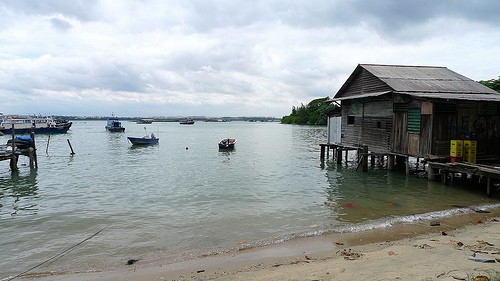Obvious statement of the day: When people have less money, they spend less. A less obvious statement: This current recession can mean the end of the green movement, because people have less money.
This global recession means people are less willing to part with money and more likely to go for whatever is cheap but not good for the environment.
Those retrenched in developing nations will turn to means of non-sustainable agriculture forms, as England’s Guardian newspaper reported last month. On Boxing Day, the New York Times reported that families in the United States are switching to coal to heat their homes in cold winters as it is more cost-effective.
Products offered at the lowest prices will be picked up by consumers. Organic foods, which are healthier and better for the environment, but more costly, will now have a hard time competing with cheaper foods grown with synthesised fertilisers chemical byproducts that are cheaper to grow.
Banks, now more careful than they have been in decades, will not be handing out loans as freely to start-up enterprises with untested or experimental technology. Corporations with a philanthropic eye on research for green technology may begin to cut back in order to stay afloat.
Part of the problem lies in the lack of tangibility of going green.
With the economy, people have numbers and indices to know for sure when an ailing economy gets back on its feet. But how will everyone know when we are officially green? Is the United Nations or the local government the ones to decree it? Will the general public believe it if they do? That is the fundamental problem.
“Going green” is an abstract term to the average Joe. Sure, you have carbon dioxide emissions reports and carbon footprint data, but that is hard enough as it is. Also, at no point will someone say, “OK, good job everyone, we are officially green. You can stop recycling now.”
Being mindful of the environment and the world we live in requires a fundamental shift in the means in which people live. It is not a diet for the planet. It is a lifestyle change.
This could not be truer in the case of oil consumption. When oil prices skyrocketed last summer, people stopped driving as much and looked into getting hybrid cars in the US.
However, when oil prices plummeted months shortly after, it was like the gas crunch never happened. People began driving more and never looked back. With reports of oil prices dropping even more in 2009, it will mean more money spent on oil.
Why should Chevron, owner of Caltex, invest more in sustainable energy technology, if it means expensive construction projects and research?
Not all is lost, though. Already, US President Barack Obama claims to have “shovel-ready” eco-friendly projects. Japan and South Korea are claiming to have “Green New Deals” for their unemployed citizens.
A deal between the Singapore government and Renewable Energy Corporation, a Norwegian solar tech firm, aims to construct a $3.4 billion solar panel manufacturing plant in 2012. The Straits Times reported that thousands of jobs can be created from this venture.
The “Green New Deal” may not seem to have the same sheen and grandiose quality as its namesake of US President Franklin Roosevelt’s 1930s-era “New Deal” in the scale of large projects, but they can still be effective in keeping governments and people from reverting to destructive means of consumption.
While there are no guarantees for either government-subsidised jobs, or the success of the green-collar industry, the public have limited options in making a difference, despite the state of the world economy.
One big way people can help keep things green is to simply consume less.Some may think it is counter-intuitive to tell people to consume less when life is based on consumption. That is not the case.
Going green during a recession is just as easy as it is during an economic boom.You just have to think outside the box.
Opting out of plastic bags is a great way to cut material consumption.
Taking shorter showers will decrease the demand for water, and the industrial process of filtering it, which alone consumes much non-renewable resources. Such actions may seem insignificant, but if enough people adopt such habits, they can make a big difference in the future.
While this economic meltdown has millions of people worrying, it does not mean we should stop worrying about the future of their planet.
It may be hard to focus on staying green, but if everyone starts trying to go green, life can be more sustainable. It will also make things better for the environment at the same time.
This article was originally published in Vol. 15 No. 7 of the Nanyang Chronicle


